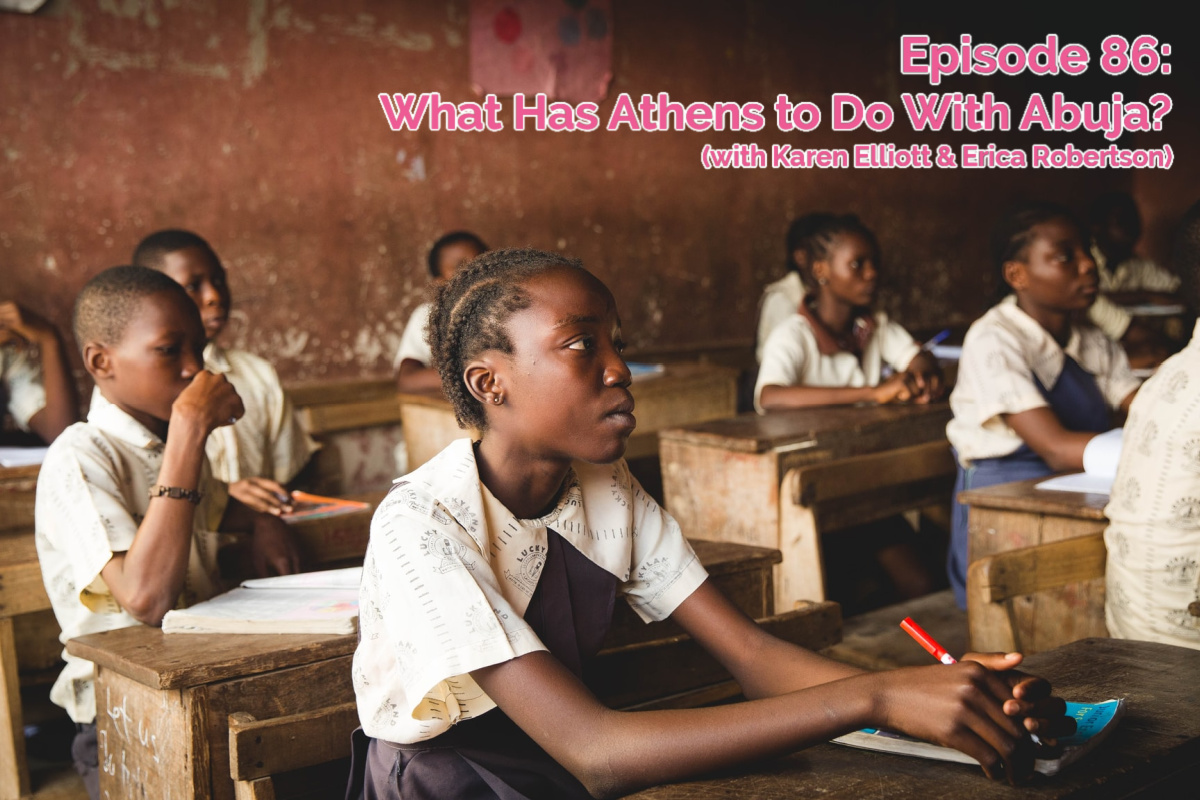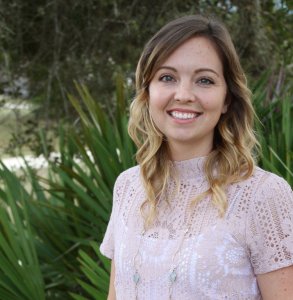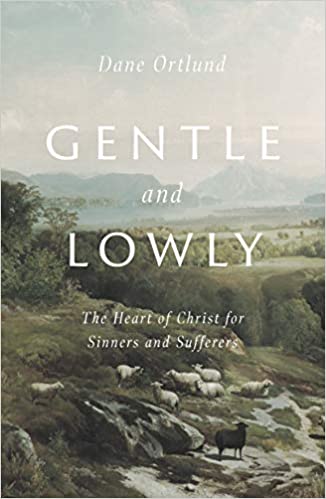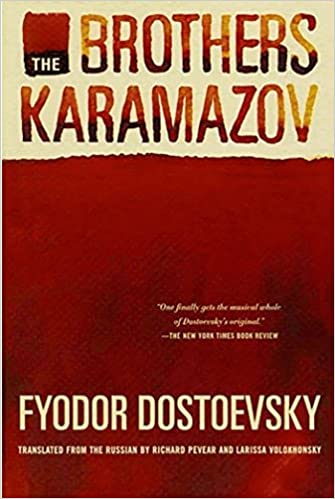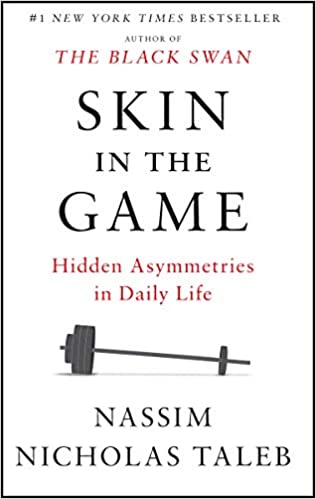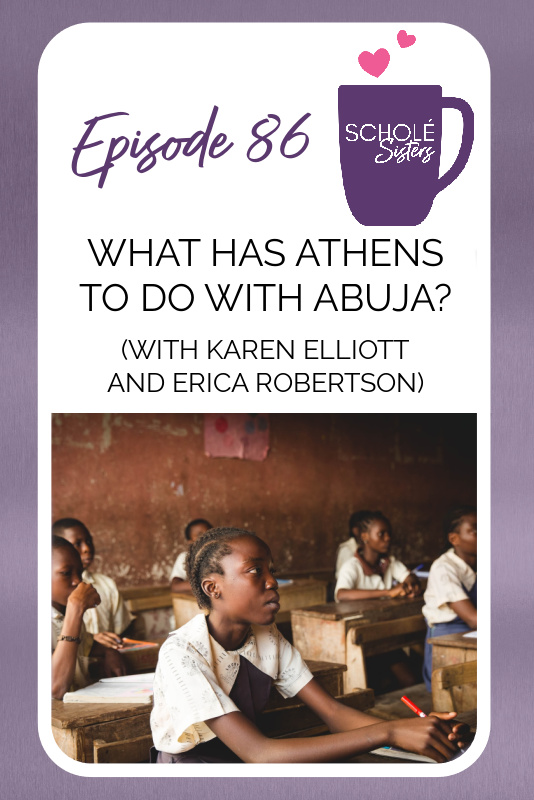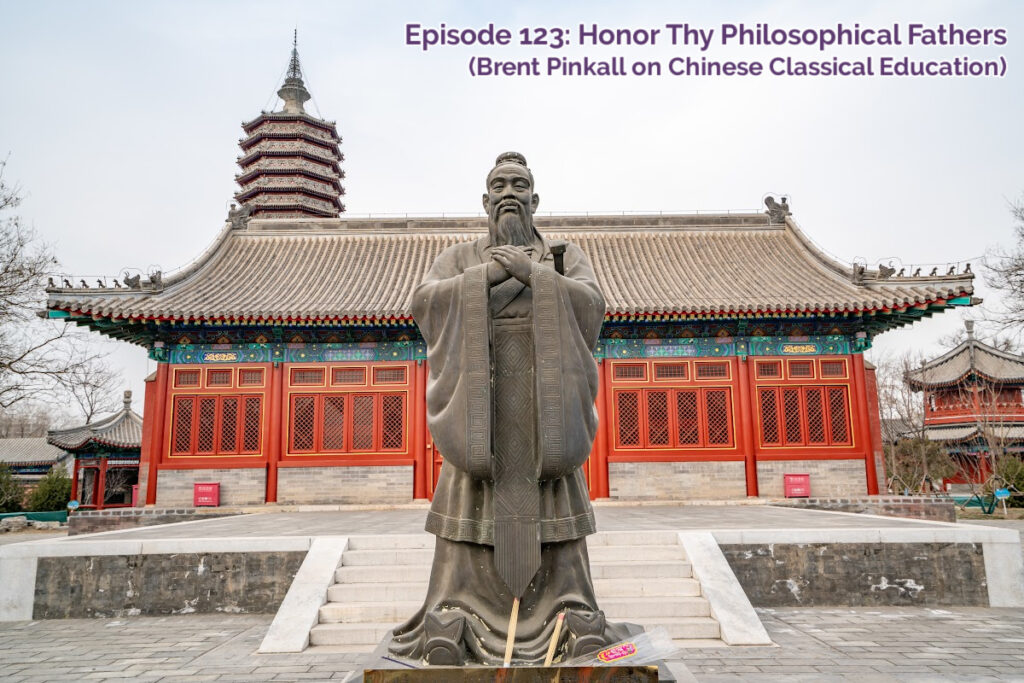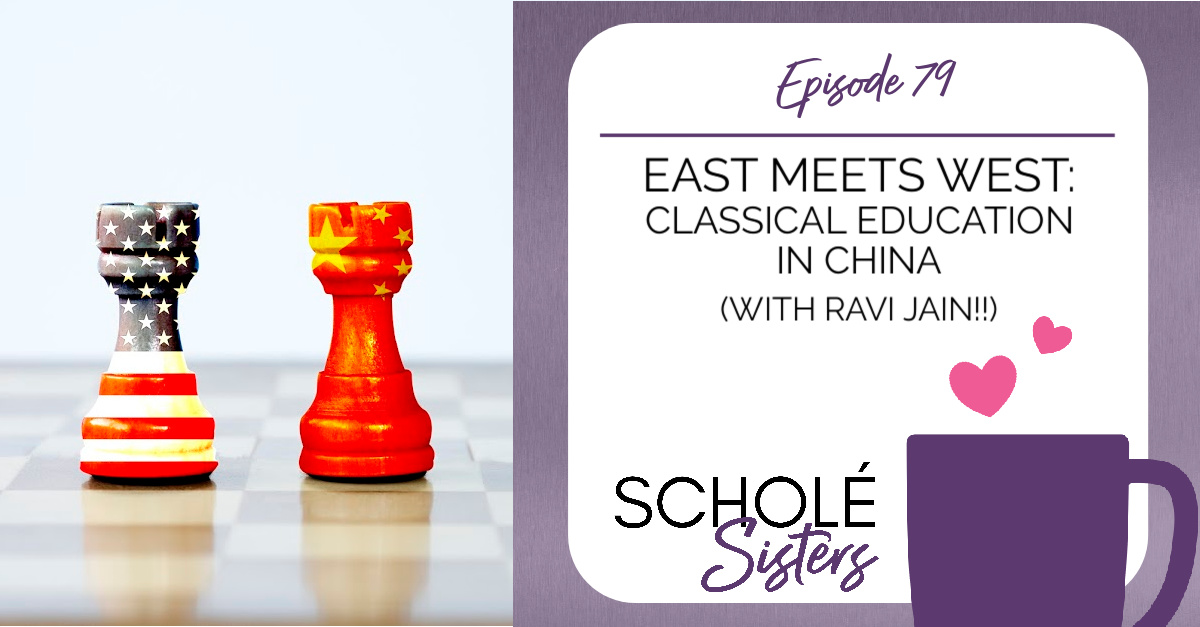SS #86: What Has Athens to do with Abuja? (Classical Education in Africa)
Is classical education only for Westerners? Karen Elliott, executive director of The Rafiki Foundation, along with the many missionaries and nationals working in the Rafiki Village schools would give a resounding “NO” in reply.
Classical education is a human education, not a Western education. It is an education for cultural leaders, and its methods and values can be applied outside Euro-American contexts.
The vision of The Rafiki Foundation is to cultivate a multitude of godly contributors in the ten African countries they serve.
To accomplish this, Rafiki established Rafiki Training Villages within the African countries of Ghana, Liberia, Nigeria, Tanzania, Zambia, Malawi, Uganda, Kenya, Rwanda, and Ethiopia. These Villages provide living and educational facilities through Rafiki’s five programs: Bible Study, Education, Teacher Training, Orphan Care, and Widows Programs.
Rafiki’s strategy is to equip people to be social and economic leaders in their communities by caring for and educating orphans, providing Bible study and Classical Christian education to the African church, giving help to widows, and equipping church schools with high quality education and well trained teachers.
Listen to the podcast:
TUNE IN:
Apple Podcasts | Spotify | Stitcher
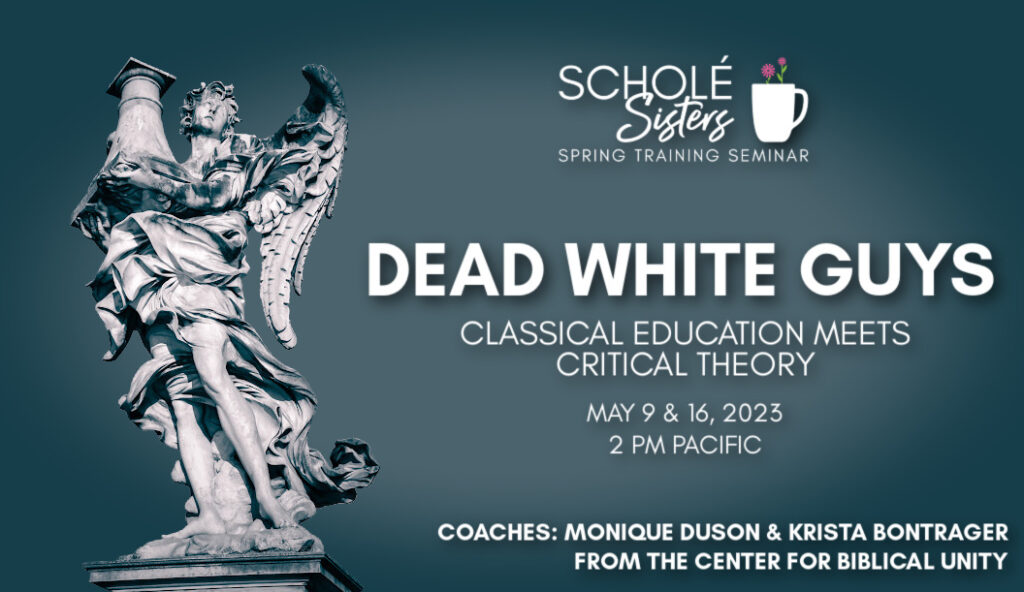
Classical Education in Africa
Today’s Hosts and Guests
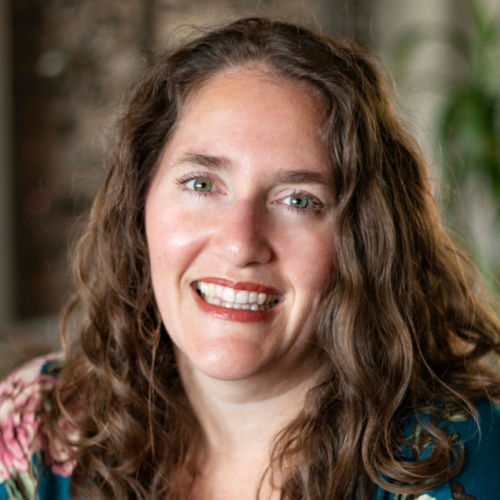
Brandy Vencel
Brandy has been homeschooling with a classical and Charlotte Mason philosophy for over 12 years and in addition to homeschooling, she also serves on the board of a local classical school startup.

Mystie Winckler
Mystie has been homeschooling with a classical bent for nearly 12 years and has also taught homeschool coops and classes in a variety of settings for over 18 years. Mystie and her family have financially and prayerfully supported the Rafiki Foundation for five years, after good friends went to serve at the Rafiki Village in Ghana.
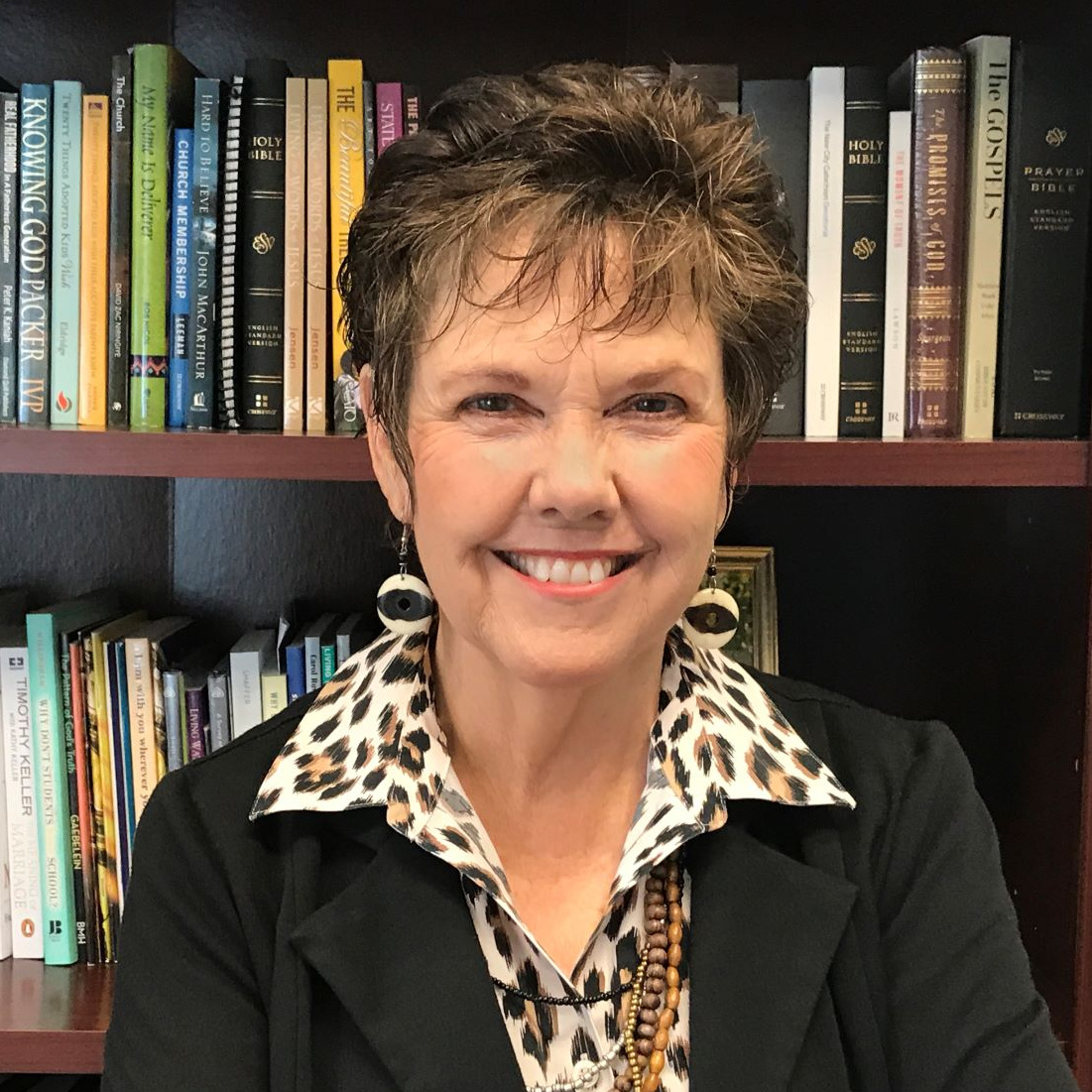
Karen Elliott
Karen has served with Rafiki since 1990, including twelve years on the mission field. Upon returning to the U.S., she became the Director of Africa Operations for the Rafiki Home Office and was responsible for managing the Child Care and Education Programs for all ten Rafiki Villages as well as curriculum development. She served at the Home Office for ten years before being named Rafiki’s Executive Director in January of 2012.
“Rafiki means “friend” in Swahili and depicts the purpose of the Foundation – to help people know God and raise their standard of living with excellence and integrity.”
RafikiFoundation.org
Scholé Every Day: What We’re Reading
God in the Dock, C.S. Lewis
Mystie enjoys following Lewis’ reasoning as he argues for basic truths of the Christian faith. Because it is a collection of unrelated essays, it is perfect for early morning reading.
Gentle and Lowly, Dane Ortlund
Rosemary Jensen gave this book to Karen, recommending it, and Karen also passes along the recommendation, especially for those who feel weary and heavy laden in their Christian walk.
Brothers Karamazov, Fyodor Dostoevsky
Erica is reading this novel as part of her masters work in Classical and Christian studies at Knox Theological Seminary. She appreciates most how Dostoevsky is able to make us relate on a human level with even the worst characters.
Skin in the Game, Nassim Nicholas Taleb
Brandy gave this book to herself as a reward for finishing her 5×5 challenge. It is more manageable and practical but also more jaded in perspective than Antifragile, so although she enjoyed it, Brandy would recommend reading Antifragile for those interested in a Taleb title.
How Rafiki Does Classical Education in Africa
Rafiki has villages – 50 acre campuses – in ten African countries whose official languages are English. Each village has an orphanage and a day school where not only the children of the village attend, but also poor students from the surrounding area come through some form of sponsorship.
Rafiki also has a widow’s program in each of their countries, helping women sell handcrafted items so they can provide for themselves and their children. In all their ministries, daily Bible study through the whole Bible is an integral part of the structure.
Additionally, seven of the ten villages have teacher colleges where not only their own graduates, but any other African young adult can attend for three years and get both classical pedagogy training from a program accredited with the country, but also a “classical education lite” in those three years.
Many of the young adults who enroll in the teacher training program have not had any world history or literature, so they are getting their own education and then are able to improve the basis of education where ever they go from there.
Rafiki partners with churches as well
Rafiki partners with over 20 denominations in the African countries they serve as well. The churches often have their own church school, but all they have access to is the official, secular, test-prep-focused state curriculum.
So Rafiki helps the churches see how they can add Bible study and Christian curriculum in their schools as well. They provide Christian curriculum and consulting to the growing, vibrant church on the continent.
In the next thirty years, one half of the world’s children will be born on the continent of Africa. The next generation of the world is there and the church’s potential to disciple and educate is great.
By providing families and churches with Bible study materials and raising the standard of education, Rafiki schools, like American classical schools and homeschools, also help build the church by teaching sound doctrine and sound thinking.
Orphans from the villages attend local churches and Rafiki makes their Bible study curriculum available freely to churches and church schools and families.
Four Reasons Rafiki Chose Classical Education
First, classical Christian education is the best education for a human being, period. It is the education designed for human flourishing that fosters good thinkers.
Second, classical education is the best education to wed with a Christian worldview for discipleship. Progressive education denies objective truth. Classical education seeks objective truth. So it is best for leading students into an informed Christian worldview, no matter where they live.
Third, classical Christian education has been the education, by and large, of the church across the world. For all the trouble colonization brought to the continent, still the churches there were established by missionaries. That classical education was transformed and established by the church was one of the top convincing arguments to the local churches Rafiki works with.
All Christians should be educated in the culture of the church, and classical education makes that possible.
Fourth, classical Christian education is an education for free people. Receiving this type of education will enable their students, who would normally be a drain on society as the poor and overlooked, to become leaders and work for the good of their communities and countries.
The Classical Curriculum Used in a Rafiki School
The Rafiki Foundation has written and designed their own curriculum because the state curriculum available in Africa was neither Christian nor academically rigorous and what was available in America was too American.
So over the years they have created their own curriculum that fits the context of the countries they are serving.
Rafiki is also working to partner with other people and organizations to codify and write native anthologies of literature, particularly the traditional oral stories. That is a multi-decade project underway.
The Bible study curriculum is the cornerstone of the Rafiki program. Every grade and even the adult village workers are studying the same Scripture each day at their own level. Those at the home office also study the same lesson together. So across the world, the Rafiki schools, villages, and missions make Bible reading and discussion a connection point in their day.
The schools do meet all the government education requirements, but with their own curriculum, which is unusual in Africa. Rafiki’s curriculum prepares local men and women to teach in their villages so that it runs within the context of the country with few Americans needed.
The villages also teach art and music as an important part of their curriculum as well, from preschool through college.
Challenges to Classical Education at Rafiki
The village schools are set up so that the missionaries serve to administrate and train, but nationals are hired to raise and teach the children as well as to interface with the government. Thus Rafiki not only prepares their students to serve their communities, but they also employ dozens of local adults and provide a thoroughly Christian working environment.
Blessings from Classical Education
The Rafiki schools have been operating for nearly twenty years and now have a few classes of graduates out pursuing further studies and work in their countries. They now have university graduates as well, in engineering and other fields, working within their countries’ economies and systems.
When they follow up on their graduate students now studying in the national universities, the professors remark upon the students’ maturity, willingness to work, ability to speak in class, and character.
They also hear from parents who have young day students, that the students’ manners and interest are noticeable. Parents are often worried because the schools are so focused on cramming for tests and Rafiki schools do not do that. Yet when they test for schools in a new area or to graduate, it is borne out that their approach works.
Karen also told the story of a young man who came to their school at sixth grade, when his education in his society would have ended, he came to Rafiki. He opened up, came to know the Lord, and read every book the village had. He then went to the teacher’s college, worked as a TA there, and now is a sixth grade teacher within the village.
Mentioned in the Episode

Listen to related episodes:
SS #123 – Chinese Classical Christian Education with Brent Pinkall
SS #84: Passport to Foreign Language
SS #79: East Meets West: Classical Education in China (with Ravi Jain!!)
SS #62: The Scholé Sisters Go Liberal (with Ravi Jain!)

Want to talk about the ideas presented here? The conversation is happening inside Sistership.


